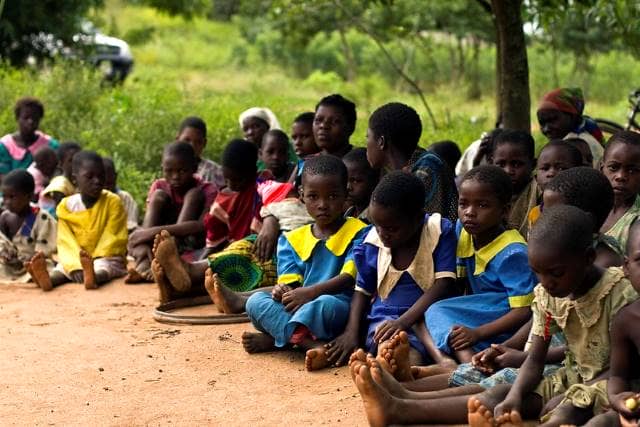Our Terms & Conditions | Our Privacy Policy
Why Malawi is still very poor

 Why Malawi is still very poor
Why Malawi is still very poor


By Burnett Munthali
Malawi is one of the poorest countries in the world, with a significant percentage of its population living below the poverty line.
According to the World Bank, over 70% of Malawians live on less than $2.15 per day.
The country has one of the lowest GDP per capita in the world, struggling to generate wealth for its citizens.
Malawi is heavily dependent on agriculture, which is highly vulnerable to climate change and external shocks.
Food insecurity remains a persistent problem, with many Malawians experiencing chronic hunger and malnutrition.
Unemployment and underemployment are widespread, particularly among the youth who lack access to quality education and job opportunities.
The healthcare system is underfunded and overstretched, leading to poor health outcomes and a low life expectancy.
The country also suffers from weak infrastructure, including poor road networks, inadequate electricity supply, and limited access to clean water.
Corruption and mismanagement of public resources have further deepened poverty, preventing sustainable development.
Foreign aid remains a crucial part of Malawi’s economy, but overreliance on it has created a dependency syndrome that stifles self-sufficiency.
Causes of poverty in Malawi
One of the biggest causes of poverty in Malawi is poor governance and corruption, which divert resources meant for development.
The agricultural sector, which is the backbone of the economy, faces challenges such as erratic rainfall, poor farming techniques, and lack of modernization.


A rapidly growing population puts immense pressure on limited resources, making it difficult for the government to provide adequate services.
Lack of industrialization means Malawi remains a primary goods exporter, missing out on value addition that could create wealth.
Poor education standards lead to a workforce that lacks the necessary skills to drive economic growth and innovation.
Inadequate healthcare services mean that many Malawians suffer from preventable diseases, reducing their productivity.
Heavy reliance on tobacco exports exposes the economy to external shocks when global prices fluctuate.
Limited access to financial services and capital prevents small businesses and entrepreneurs from expanding their ventures.
Gender inequality and cultural practices often sideline women from participating in economic activities, limiting national productivity.
High levels of external debt burden the economy, as a significant portion of government revenue goes into debt servicing rather than development projects.
Poor infrastructure, including unreliable electricity and bad roads, discourages foreign direct investment and stifles economic growth.
Possible solutions to Malawi’s poverty
Improving governance and reducing corruption should be a top priority to ensure that public resources are utilized effectively for development.
Investing in modern agricultural techniques and irrigation systems can help farmers mitigate the effects of climate change and increase productivity.
Encouraging industrialization and value addition to raw materials can help Malawi diversify its economy and create more jobs.
Expanding access to quality education and vocational training can equip the youth with skills needed for the job market.
Strengthening the healthcare system by investing in hospitals, medical supplies, and training more healthcare professionals can improve productivity.
Developing alternative sources of income, such as tourism and mining, can reduce reliance on agriculture and tobacco exports.
Providing financial support and incentives to small businesses can help grow the private sector and create employment opportunities.
Promoting gender equality and empowering women economically can boost household incomes and contribute to national development.
Encouraging responsible family planning can help manage population growth and ease pressure on social services.
Negotiating for better trade agreements and reducing dependence on foreign aid can promote self-sufficiency and sustainable growth.
Investing in infrastructure projects such as roads, electricity, and water supply can attract investors and boost economic activities.
Malawi has the potential to rise from poverty if strategic policies are implemented effectively and corruption is minimized.
Like this:
Like Loading…
Discover more from The Maravi Post
Subscribe to get the latest posts sent to your email.


[ad_1]
Images are for reference only.Images and contents gathered automatic from google or 3rd party sources.All rights on the images and contents are with their legal original owners.
[ad_2]


Comments are closed.